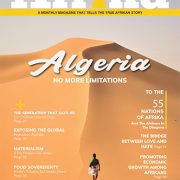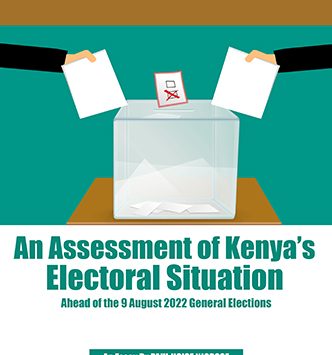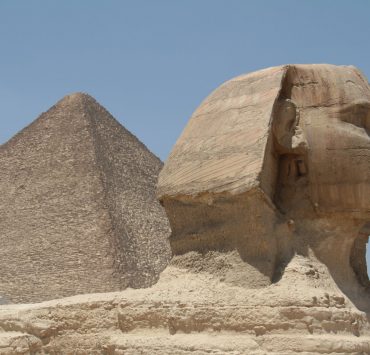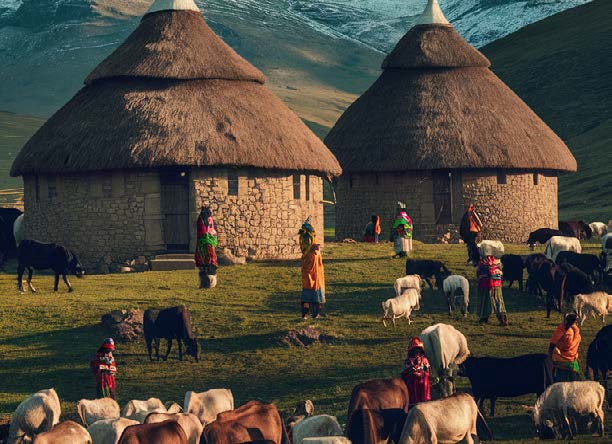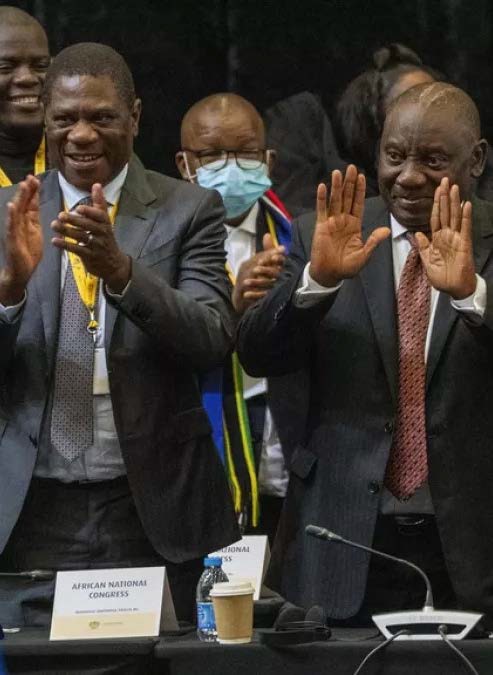Afrika’s responsibility for its rise or fall – the case of Kenya’s 2022 general elections
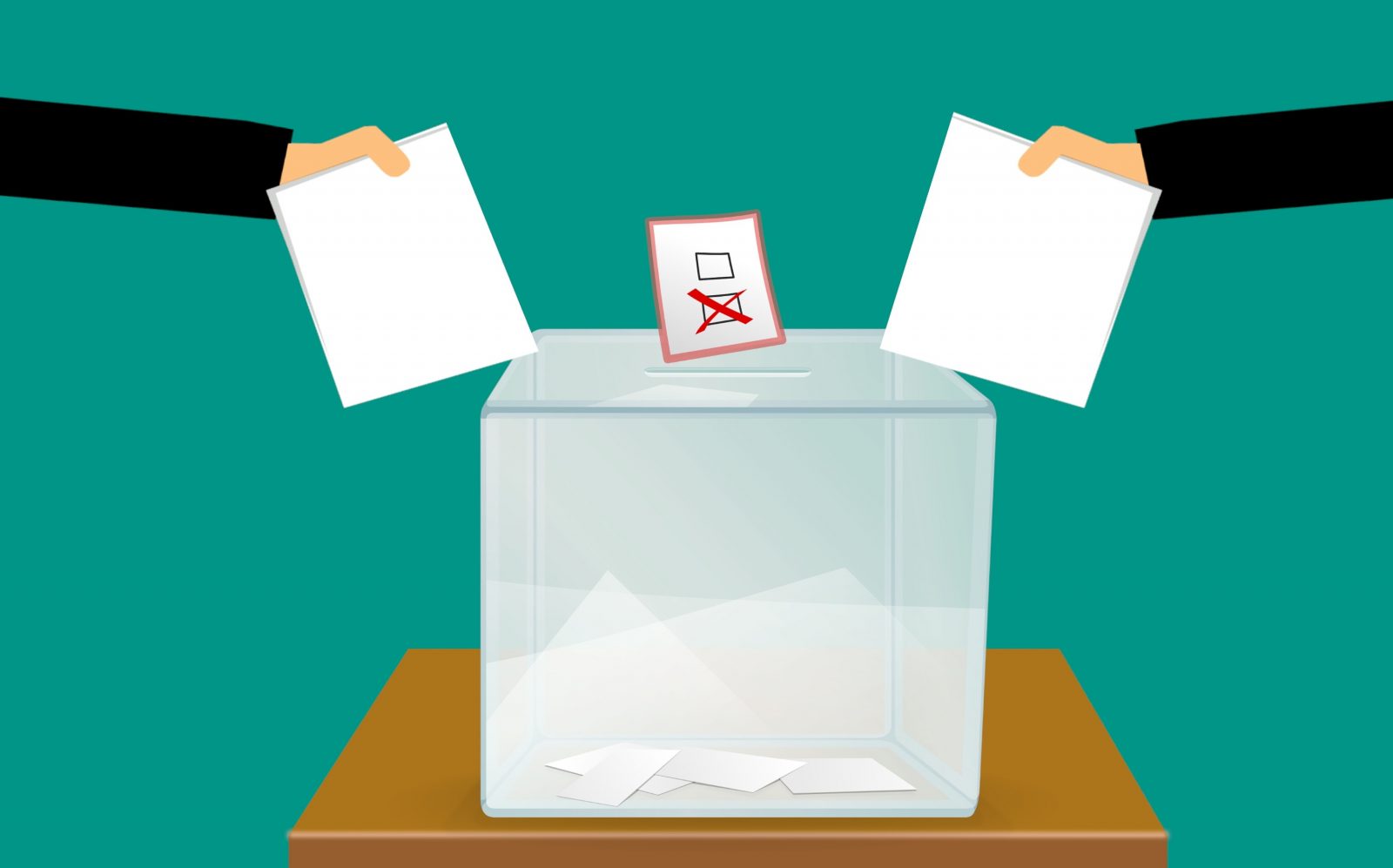
Chioma Phillips is the Editor of Msingi Afrika Magazine and…
Kenya is days away from its 2022 general elections planned for Tuesday, August 9th. At last, the circus of the campaigns will come to an end and the new lot of leaders from county to national level will finally be revealed. It’s been exhausting being in this environment and watching the games being played and the underhanded strategies being implemented all with a view of convincing the voter to select A instead of B.
Ahead of the elections, we received a long essay written by one impassioned Kenyan making an assessment of the effect of the current electoral environment in the country and urging voters to select a specific candidate. The article is titled: An Assessment of Kenya’s Electoral Situation Ahead of the 9 August 2022 General Elections, by Paul Ngige Njoroge. (Full disclosure: Paul Njoroge is my uncle). You can read it in its entirety at this link. As I share this I am aware that there are those who will have differing opinions concerning his writing, even those who may support some of his views. That’s alright, it is the nature of things. There are over 7 billion people on earth, which means there are that many opinions and perspectives on any given issue. The key is how we manage our interaction with what differs from what we see. That’s very important.
Now, we have spoken severally on our various platforms on the importance of your vote in an election. That is, you exercise your spiritual and moral authority to select a leader to represent your interests in government. This is critical in that you have declared your position, whether your candidate is selected or not. This vote, we have also emphasized, needs to be based on a serious consideration of the candidate you are selecting because you are – in essence – delegating your spiritual and moral authority to an individual or group of individuals to determine the future course of your country. This decision is not to be taken lightly as it will not only impact your life, but the lives of your children, family, community and nation in the immediate and for generations to come and will either come back to haunt or vindicate you.
The author of the paper we have shared has Bachelor’s and Master’s degrees in Literature, is a seasoned editor and is a published author of A People Called the Agikuyu: Yesterday and Today… and Tomorrow. He has been observing the political climate in Kenya for some time. His book, published in 2017 (and a worthwhile read for any student of Kenyan or Afrikan history) outlines his position on the current administration at the point of their initial selection in 2013 and prior to their re-election in 2017, as quoted in an excerpt of his book, here:
“The period of the Grand Alliance government saw the struggle for the Kibaki succession. Ranged against one another were Raila Odinga and Uhuru Kenyatta, who had allied himself with President Mwai Kibaki. There were concerted international attempts to tip the succession in Odinga’s favour: Uhuru Kenyatta and William Ruto were indicted at the International Criminal Court as perpetrators of crimes against humanity during the 2007/8 inter-ethnic violence.
There was fascinating drama as a major effort was made to reconcile feuding communities in the Rift Valley. An alliance was forged between Uhuru Kenyatta and William Ruto and their Gikuyu and Kalenjin communities. To the Agikuyu, the media and so-called “civil society” appeared, in a partisan manner, to champion the removal of Kenyatta and Ruto from the political arena through the instrumentality of the ICC. But two communities showed single-minded commitment to inter-ethnic reconciliation in order to secure a new future of hope, and they were determined to resist the false, destructive messages coming from the media.
The Jubilee ticket of Kenyatta and Ruto triumphed at the March 2013 elections. The Jubilee administration faced many challenges, including the challenge of international terrorism, local banditry, and official corruption. But largely it delivered on its mandate, including implementing a new, liberal-democratic constitution with its provision for 47 devolved, and national government-funded County governments.
As Kenya approached the August 2017 elections, had things settled down? The answer is no. An insurrectionist stance and agenda were being kept alive in 2016 by ODM and allied parties through perennial political agitation and violent “mass action.” In 2017 there were threats to influence the results of the 2017 elections by using unorthodox measures like introducing vote tallying centres parallel to those of the legal authority—the Independent Electoral and Boundaries Commission.
But people remained vigilant and determined to return to power by popular vote the Jubilee government that had respected the constitution and the institutions of the rule of law—a government that had guaranteed all Kenyans their daily routine as they seek to live, to care for their families, and to seek their happiness and place under the sun.”
His new essay (shared at the link above) reveals the feelings of betrayal that he and many others have expressed concerning the current administration after the 2017 elections. He says in part:
“History will never forgive Kenyatta for his role in this evil. And at any rate he has sullied the Kenyatta name irredeemably.
Mwai Kibaki was a dedicated public servant who used his deep understanding of economics to enhance the socio-economic welfare of the people. When he became the president in 2003, the Kenyan economy was growing at the sluggish rate of 0.5 per cent per year. By the year 2007, the election year, the economy was growing at 7.1 per cent. These were not mere statistical niceties: the Kibaki economy was sustaining the free primary school education programme that had enrolled more than 2 million new learners.
And this is how general prosperity looked like, under the Kibaki economic vibrancy as his first term came to an end: “The latest Central Bank of Kenya … monthly economic bulletin shows that exports during the year to August rose by 15 per cent to $3,908 million ($3.9 billion or sh246 billion) with tea, horticulture, and manufactured goods leading the way.” (Sunday Nation, 23 December 2017)
The socio-economic performance of the Mwai Kibaki leadership had been acknowledged internationally. Former American President Bill Clinton had hailed Kibaki’s educational initiative, a venture to build Kenya’s human resources. And in June 2007, the British Financial Times had (grudgingly) acknowledged that Kibaki’s Kenya had developed an exemplary model, worthy of emulation by other developing countries.
Paul Redfern, Nation correspondent in London, reported what the Financial Times had said: “President Mwai Kibaki is on course to win a second term in office because of substantial improvement in the Kenyan economy over the past five years. … With Kenya now only five per cent dependent on donor aid to support its annual budget, with the bulk being made up by tax revenues, the president has greater room for manoeuvre. With revenue now rising, thanks to economic growth and more efficient tax collection, the Kenyan economic destiny is far more in the hands of its own politicians than other African countries.” (Daily Nation, Friday, June 22, 2007, p. 9)
As is now well known by all students of our history, Kibaki was not only not given credit for empowering Kenyans and enhancing their happiness in the country by Odinga, Kenyatta’s current candidate for president. He was demonized by Odinga with the help of the media. Then when Odinga, Kenyatta’s newfound soulmate, lost the 27 December 2007 election, he visited death and destruction on Kenya.
Odinga, Uhuru Kenyatta’s 2022 presidential candidate, bears the prime responsibility for the mass deaths, mass injuries, mass displacements and destruction of property and disruptions of economic activities, including stoppage of farming activities, occasioning Kenya massive economic loss. In effect, the economy that Kibaki had built over more than five years was destroyed and brought to its knees by Odinga, Uhuru’ Kenyatta’s 2022 presidential candidate.
The official statistics for the mayhem described as Post-Election Violence, which Kenyatta should know – and should care about! – are as follows: 1,100 people killed; 3,500 injured; unknown hundreds or thousands of women raped: 600,000 displaced. (Hornsby, Kenya: A History Since Independence)
And listen to this: On 4th January 2008, Michelle Gavin of the Council on Foreign Affairs estimated that Kenya was losing US$30 million per day on account of the ODM-instigated mayhem. You can do the mathematics: calculate this over three months. Any wonder that the economy that Kibaki had nursed over six years to 7.1 per cent growth should in 2008 plummet to 1.9 per cent growth? But this patient and true father of the Kenyan nation got back to his nation-management work. And the year 2009 saw economic growth of 2.5 per cent. In 2010, Kenya’s economic growth, at 6.0 per cent, was close to the level of growth in 2007. (Hornsby, Kenya: History Since Independence)
Mwai Kibaki bequeathed Kenya a healthy economy. Recently, through a process called “state capture,” the Kenyan economy has become Kenya’s and Odinga’s plaything. I don’t presume to understand it all, but the reality is that Azimio la Umoja One Kenya Alliance has unimpeded access to state finances to conduct their political campaigns. The so-called “anti-corruption” Azimio brigade is comfortably made wealthy by unimpeded access to state resources. Recently, Kenyatta has sought to excise large portions of land from the land whose title is held by Kenyatta University.
The Kenyatta-Odinga dispensation inflicted on Kenya since the early part of 2018 will require a great independent auditing process, so that we can understand how private interests have impoverished the people of Kenya.
With respect to economic management, Kenyatta has repudiated the Kibaki legacy.”
His words are, for me, revealing on many levels. As a Kenyan and a registered voter who had certain expectations of an administration, he is disappointed. As a father and grandfather (which he is) he is concerned about the future of his progeny and sees little to no hope at the moment. As a student of literature and, therefore, human nature, culture and society, it seems to me that he sees a terrible darkness that is imposing itself upon his nation that gives him cause for alarm.
For me, I see where the hands of the globalists were most certainly at play in Kenyan politics, where the activities of Economic Hitmen were employed, and where the administration must have buckled under external pressure and given in to the manipulations of the neocolonial imperialist to the detriment of us all. I see who they used and how they made their approach. That’s my lens. One of them at least.
Paul Njoroge’s paper clearly outlines where he perceives that things went off plan for Kenya, why and how and what must be done in order to bring things back on track. His are the words of a man who has carefully thought through and considered the path: past, present and future and now seeks to urge others to see as he does.
This is why I felt was important to share his essay with you as one of our readers. The continent of Afrika has been sadly weak in the area of considered opinion. This has been the most challenging aspect of our overcoming of the wiles of the neocolonialists and their puppets on the continent. Many people have been unwilling and disinterested or unable to form cogent arguments, outside of what they read or watch in the news or hear on the streets, concerning the issues affecting Afrika, the leadership of the continent and the problems with it. Many have been more willing to whitewash individuals who have betrayed them and let them down over and over and over again, opting to vote them in regardless of their inability to perform the tasks they had pledged to. There has been a particularly blinding myopia that has overcome many Afrikans, that has prevented them from seeing into the future with clarity on the basis of the past and present actions of popular leaders or individuals. The inability of people on the continent to measure the veracity of an individual’s claims, particularly one who has consistently been unfaithful and to make a determination to choose a new option has been lacking. Instead, what has dominated has been politics of ethnicity and politics of the pocket. In other words, I will choose you if you come from my or my preferred community or if you pay me well enough to do so. In so doing, Afrika has remained eating the consequences of its choices election season after election season and the fruit has been nasty and noxious. But it is our fault.
My husband asked me about one of the candidates in this year’s elections and my thoughts on this particular candidate. I answered him, after a pause, and gave him my opinion. Then I expanded on my answer by telling him that I felt that of all the countries in Afrika – and possibly the world – Kenya has the gravest responsibility of managing its elections with sobriety considering the events of 2007/8. During that electioneering period, the choices of a few people led to a horror that was visited upon the land of Kenya that has left enduring scars and heartache in many. To mindlessly handle issues of ethnicity or use loose language utterly dishonors the painful memory of that time. Kenya was on the brink of disaster, what was happening in Kenya had ripple effects on economies in the region and worse yet, people died, were injured or displaced from communities they had belonged to literally in the blink of an eye. Therefore, that people can be CASUAL about elections to the point of carrying on the way that they have in this cycle is like someone taking a dump on the memories and experiences that we were mercifully brought out of before they got worse than they did. I have family that had to flee their home for fear of what could happen to them. I left the area I was working in and moved back to Nairobi to be closer to an environment I was familiar with during that period. For our immediate family, no one lost a life, but our Kenyan family was grievously wounded. WHAT DID WE DO WITH THE LESSONS FROM THAT PERIOD?
When I look at the goings on in these elections, based on the seeming casualness around many of the still sensitive issues… I can only answer that some people did not learn a thing. The political class walk around like high school boys and girls who have been given small authority like a prefect or a head girl, or who have popularity that grants them a certain status. What they do with the authority and status in high school is to favor or punish friend or rival… never giving thought to the long-term effects their actions and words will have on the people they are targeting or the culture of the school. Politicians wield their responsibility with all the wisdom and savvy of a baby holding a bazooka. They run around the country calling each other names and effectively seeking to divide the nation’s opinions and hearts between them and their opponents, meanwhile they secretly meet with each other and form pacts and alliances that make a lie of their public rivalry. Not once do they consider the effect they are actually having on the electorate who believe the lies that they spin about non-existing rivalries. It’s tragic how inconsiderate they are with people’s lives and psyche.
However, as I always insist, they are not the worst of it. The electorate is. Why? Because they watch all of this foolishness unfold election cycle after election cycle and they do not do a thing to change either the system or their responses to the insidious machinations at work. They constantly give in and therefore repeatedly get the same outcome.
But we cannot go on holding our collective breath every 4 or 5 years and waiting to see whether violence will be the outcome of our elections in Afrika. Or having investors take a ‘wait and see’ stance during each election year. Or watching candidates perform the same song and dance every single time knowing that we will take the bait. Surely, we have to grow up at some point.
The reason why I shared Paul Njoroge’s essay is that he has taken the time to think and articulate his position on this year’s elections. His own position. You may like it or hate it, but either way he thought it through and arrived at a conclusion that he is at peace with based on reasons that for him make perfect sense. How many Afrikans can say that of themselves? Or are they still bedazzled by the music, the handouts and the tall tales that many politicians weave to distract them? Either way, whatever the excuse given, we must now face the truth that we have a specific responsibility to God, ourselves and one another to make our choices on bases that are higher than emotion, ego, desire and money.
And so, I invite you to read this well-written piece as you reflect on your specific situation and mindset in whichever nation you’re from. The author will take you on a very specific journey based on his own cogitations, however, it is your responsibility to deal with his words and conclusions from a neutral standpoint and to thoughtfully reflect upon your country’s own issues and needs and begin to take positions that make sense for Afrika’s future trajectory. Remembering that Kenya’s choices in 2007/8 affected a region’s economy negatively and that people paid with their lives for those choices. Keeping in mind that each election affects a 4 or 5-year or 8 or 10-year time period depending on the country. That’s too much time to waste with the casualness I have heard where people mindlessly say, “Let them have it this time, we will take it next time.” Keep in mind that each one of those years gone by carries over 300 days of seed-sowing in the form of policy and laws and bilateral or international agreements that affect generations. Your position determines the direction things will take and what climate will operate over the lives of those you know and care about – or not. It matters what stand you take and why.
Thank you for your time.
What's Your Reaction?
Chioma Phillips is the Editor of Msingi Afrika Magazine and the host of Msingi Afrika Television. Her hope is to see the Truth shared, with all who will listen, for the transformation of the people and the continent of Afrika - and the world. She believes passionately in the critical role that Afrika and Afrikans have to play on earth right now and hopes to ignite the spark that will cause them to see and believe who they are, so that they can live out their Truest lives for the remainder of their days.








